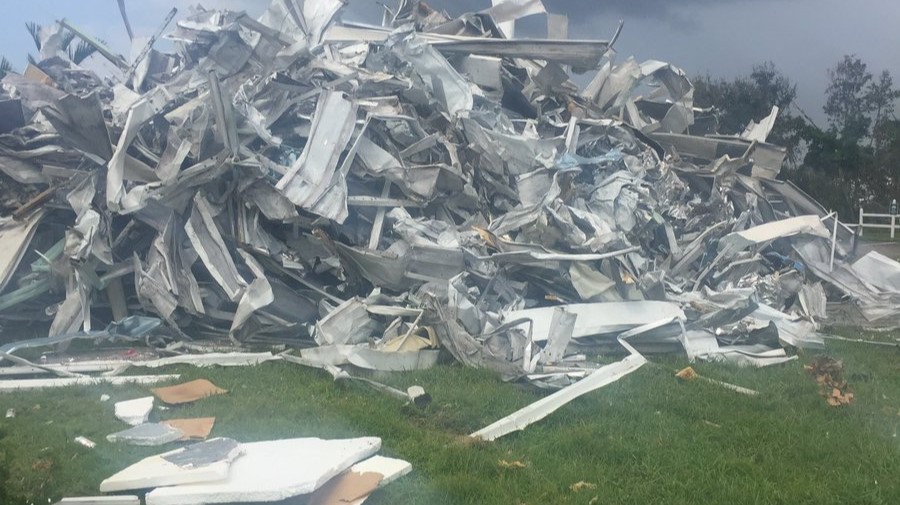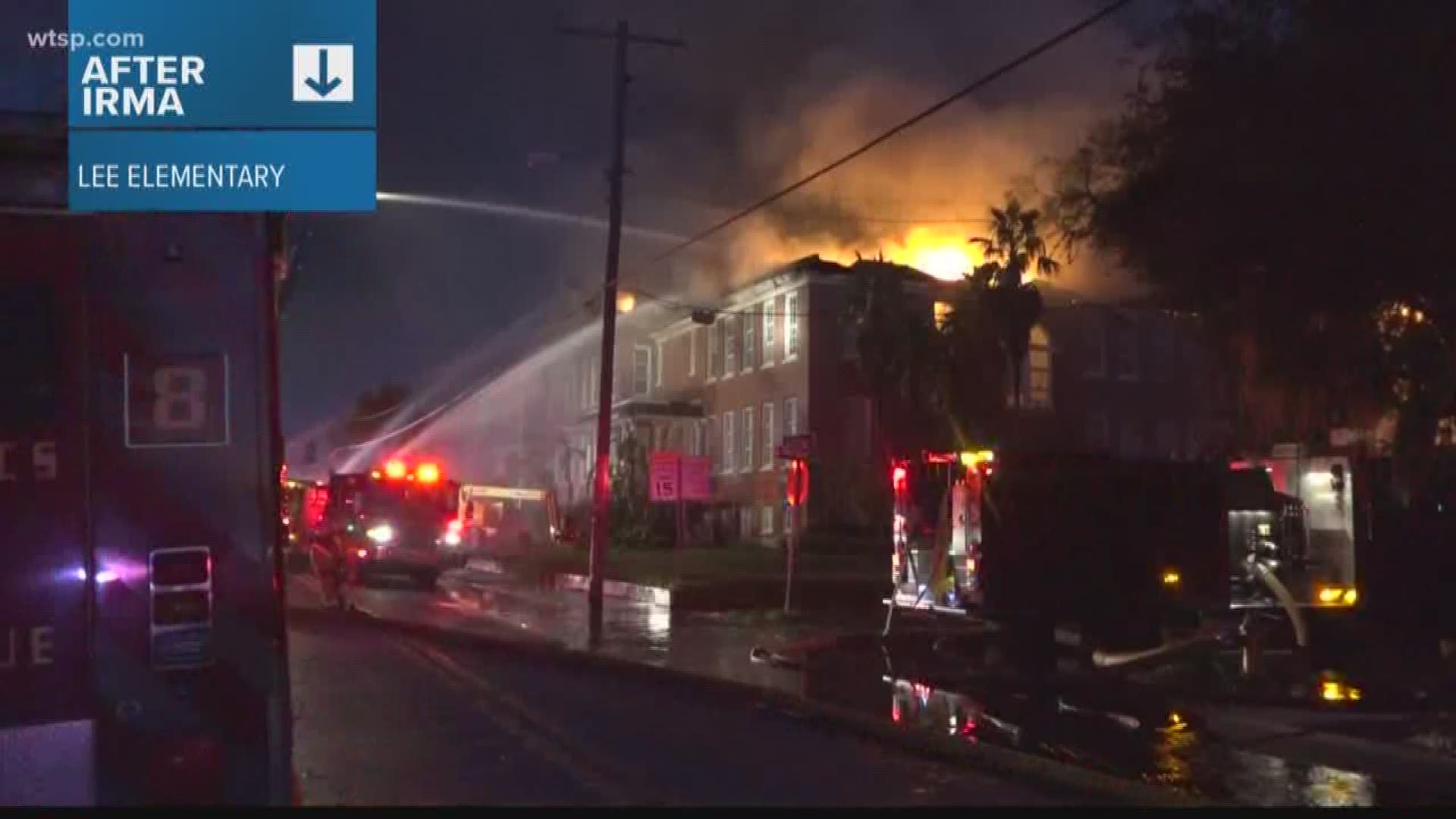ST. PETERSBURG, Fla. (WTSP) - People all over the Florida are getting their power turned back on and picking up the pieces after Hurricane Irma.
For some, that means making insurance claims for damage caused by the storm.
Earlier this summer 10News reported on a crisis in the state caused by what is known as Assignment of Benefits fraud. Now, in the wake of Irma, insurers are worried about that crisis getting worse.
Here’s how Assignment of Benefits (AOB) works: You need repairs done and you sign a deal that gives your contractor the right to bill your insurance company directly.
It’s a tool that works great when used with health insurance, but with home insurance there are contractors and attorneys gaming the system with lawsuits and lawyer fees and consumers end up paying the cost through increased premiums.
State insurance regulators worry that Irma will open the door to more AOB fraud and they’re warning anyone with damage to be on the lookout.
“If an offer sounds too good to be true, it probably is and could be fraud,” said state Chief Financial Officer Jimmy Patronis. “Opportunistic scammers may attempt to defraud Floridians following Hurricane Irma, and I encourage all Floridians to be vigilant in guarding against fraud. Consumers should report suspicious activity ASAP by calling 1-877-693-5236.”
Here’s what the Better Business Bureau says about Assignment of Benefits:
Understand Assignment of Benefits Contracts. Beware of contractors who claim to be insurance claim specialists and may ask you to sign an agreement to allow them to contact your insurance company and seek approval of repairs for you. Many unscrupulous businesses have tricked consumers into signing a work estimate without reading the fine print, which commits you to automatically contract with their business if your insurance claim is approved.
HURRICANE IRMA INSURANCE CLAIM TOOLKIT:
Florida Dept. of Financial Services Hurricane Irma Insurance Resources
Florida Dept. of Financial Services Disaster Assistance Pamphlet
Florida Office of Insurance Regulation Hurricane Season Resources
ADVICE ON POST-HURRICANE CONSUMER PROTECTION
(From the office of the Attorney General)
After a natural disaster, consumers should be wary of tree service scams, building and home repair scams, disaster relief scams, and water testing and treatment scams. If you suspect criminal activity such as looting, robbery or any violent crime, call 911 immediately.
Building Repair and Contractors: After a disaster, qualified contractors are in high demand, making things ideal for scam artists. If your home is damaged, be sure to follow these tips when hiring a contractor:
· Watch out for unsolicited offers or contractors claiming they can perform repairs at a discount with leftover supplies from another job;
· Have your insurance company evaluate damage before arranging repairs to ensure that the work will be covered under your policy;
· Get at least three written, itemized estimates or bids on repairs;
· Verify a contractor has a license with local and state licensing boards;
· Additionally, ensure the contractor is licensed for the job. Check to see if a company is properly licensed and if there are any consumer complaints filed against a licensed contractor at MyFloridaLicense.com, the Department of Professional Business Regulation’s website;
· Research the company and its reputation–ask for references;
· Contact the Florida Attorney General’s Office at 1 (866) 9NO-SCAM to see if there are complaints against a company or contractor;
· Check for proof of insurance and verify with the insurer that their policy is current;
· Check to see if the contractor is bonded and verify with the bonding agency;
· Never pay the full amount of a repair up front and hesitate before providing large deposits;
· Read entire contract, including the fine print, before signing to ensure it includes the required buyer’s right to cancel language. Understand cancellation rights and penalties you may experience for cancelling;
· Homeowners may unknowingly have liens placed against their properties by suppliers or subcontractors who have not been paid by the contractor. If the contractor fails to pay them, the liens will remain on the title. Insist on releases of any liens that could be placed on the property from all subcontractors prior to making final payments; and
· Do not sign a certificate of completion or make final payment until you are satisfied with the work performed.
Tree Service Scams: Heavy winds from a hurricane or tropical storm results in littered roads and uprooted trees. If you plan to have nearby trees removed to protect your home from danger or have fallen trees removed after a storm, follow these tips to avoid being scammed:
· Watch out for anyone who approaches unsolicited about tree removal;
· Get multiple written estimates and ask whether debris removal is included in the estimate;
· Research the company and its reputation–ask for references. Contact the Florida Attorney General’s Office at 1 (866) 9NO-SCAM to check if there are complaints against the company;
· Check for proof of insurance and verify with the insurer that their policy is current, and
· Never pay the full amount up front and do not make a final payment until you are completely satisfied with the work done.
Charity Scams: This scam is particularly effective after a disaster, during which numerous disaster-specific charities crop up. If you would like to donate to help with disaster relief, consider these tips:
· Avoid solicitors that use high-pressure tactics or are hesitant to provide additional information on the charitable organization;
· Be wary of charities with similar sounding names. Some phony charities may attempt to capitalize on disasters by using names similar to legitimate, well-known charities;
· Consider donating to an established disaster-relief charity; and
· Contact the Florida Attorney General’s Office or the Department of Agriculture and Consumer Services (1-800-HELP-FLA), the agency that regulates charities, to determine if the charity you are donating to has any complaints against them.
Disaster Relief Scams: The Federal Emergency Management Agency offers disaster relief to eligible victims through various programs. When seeking aid, consider the following:
· No state or federal disaster relief agency will call you for your financial information;
· State and federal workers carry identification and will not ask for or accept cash;
· Know that applications for federal FEMA relief programs are free and can be accessed at DisasterAssistance.gov or by calling 1-800-621-FEMA; and
· Be wary of anyone who offers to fill out, assist with or expedite your application as they may be seeking access to your personal information.
Water Testing and Treatment Scams: Water mains and personal wells can be affected during hurricanes, and dishonest companies and individuals may insist upon pricey tests to determine water safety. Avoid falling victim by following these tips:
· If someone claims to be a representative of your city, county or utility provider needing to inspect your water line or well, ask for proof of identification;
· Check for water safety alerts as provided by local media and utility providers;
· If you doubt the safety of your water, contact your local health department or utility. Local water utilities are required to test water quality on a regular basis;
· If you doubt the safety of your well water, seek advice from your state or local health department to determine what tests should be performed and find certified testers in your area; and
· If in doubt, boil water vigorously for one to three minutes or drink bottled water.
The state of emergency is still in effect and that means Florida’s price gouging law still applies to anyone who sells essential commodities or provides essential services to our consumers. We anticipate an uptick in price gouging complaints and complaints about unscrupulous contractors and charities post-Irma, especially tree service scams, building and home repair scams, disaster relief scams, and water testing and treatment scams.
Please report any scams to the Florida Attorney General’s Office by calling (866) 9NO-SCAM. If you cannot get a live operator file a complaint online at MyFloridaLegal.com.
# # #


